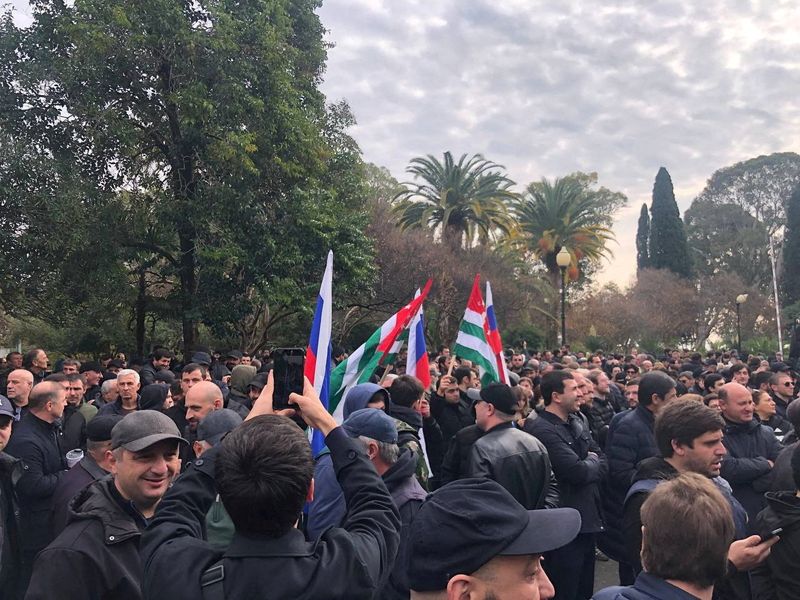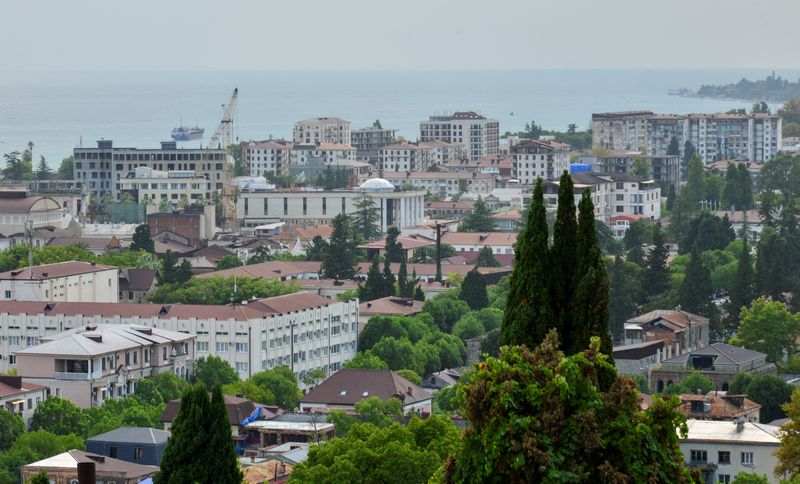MOSCOW (Reuters) - Protesters in Georgia's Russia-backed breakaway region of Abkhazia declined on Saturday to leave the parliament building which they stormed the previous day, a departure proposed by the region's president as a condition for resigning.
Protesters had occupied the parliament in protest at an investment agreement between the Black Sea region and Moscow.
Russian news agency RIA reported that President Aslan Bzhania had said on Saturday he would resign and hold a snap election once protesters vacated the parliament in Abkhazia's capital Sukhumi, and proposed a vice-president as interim head of state.
"When they leave the building, I will write my resignation letter and in the new election we'll see how much support they get," RIA cited Bzhania as saying.
He said he planned to run in that election.
Bzhania, quoted by Russian news agencies, later told a government meeting held in his native coastal village of Tamysh, that order would be restored. He said protesters only controlled the parliament and government buildings they had occupied.
"The situation will stabilise, everything will return to a legal framework," RIA news agency quoted him as saying. "We have a president, we have laws. We have a homeland that we all must serve."
Abkhazia's interior ministry and security service issued statements saying they would obey orders from the president.
Protesters said in a statement that the occupation was not against Abkhazia's close ties with Russia, but accused Bzhania of "trying to use these relations for his own selfish interests (and) manipulating them for the sake of strengthening his regime".
TASS news agency quoted a representative of the protesters, Adgur Ardzinba, as saying they would remain in place until the president resigned.
Moscow said on Friday it was following the "crisis situation" with concern and urged Russian citizens to avoid travel to Abkhazia.

Russia recognised Abkhazia and another breakaway region, South Ossetia, as independent states in 2008 after defeating Georgia in a five-day war. It maintains military bases in both regions and props up their economies.
Most of the world recognises Abkhazia as part of Georgia, from which it broke away during wars in the early 1990s.
